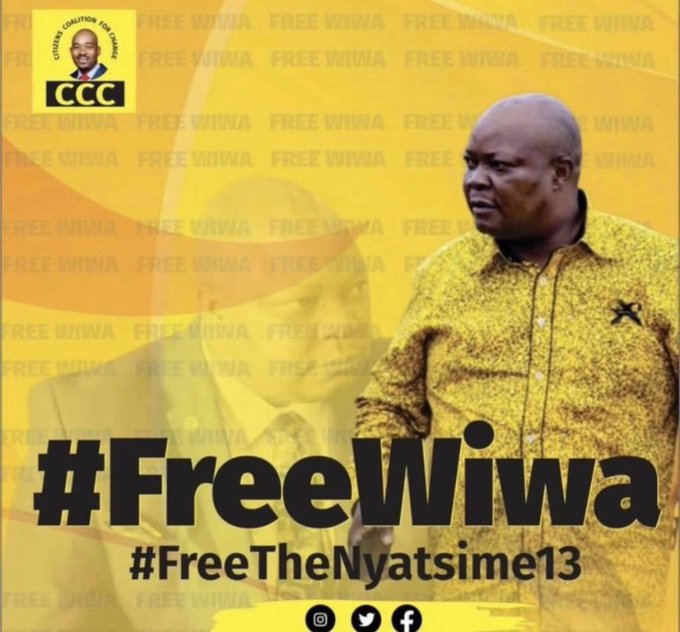
On 25 July, the Forum issued a statement in which it raised concern over the weaponization of bail against perceived enemies of the State, particularly opposition Citizens Coalition of Change (CCC) supporters and human rights defenders. The politicisation of bail is now a trend as evinced by cases handled by the courts in the past two years.
Sikhala has reportedly been arrested 60 times in his political career but has never been convicted of any single offence. Nevertheless, he was denied bail on the grounds that he has the propensity to re-offend. Bail was denied to all the others on the basis that the offence is serious, and the accused may abscond. No ZANU-PF supporter, including Nyatsime ward 9 Councillor, Masimbi Masimbi, who publicly incited the violence, has been arrested in connection with the Nyatsime skirmishes.
Crisis in Zimbabwe Coalition Obert Masaraure, who is the Amalgamated Rural Teachers Union of Zimbabwe (ARTUZ) president has also been languishing in remand prison over murder charges. Masaraure was first arrested on 14 June on accusations that he murdered his friend, Roy Issa, in 2016, although an inquest into Issa’s death ruled out foul play. He was released on ZW$60 000 bail on 29 June by the High Court. Still, He was re-arrested a week later for inciting public violence after he allegedly posted on Twitter urging teachers to demand the release of his colleague, Robson Chere, who was in jail facing similar accusations of murdering Issa.
In its statement of 25 July, the Forum challenge the judiciary to enquire about the worrisome trend of denial of bail for political detainees which, in most cases, results in the overturning of the decisions by the High Court on appeal. We reiterated that bail is a constitutional right that every accused person should have access to regardless of political affiliation. Section 50 (1)(d) of the 2013 Constitution asserts that any arrested person “must be released unconditionally or on reasonable conditions, pending charge or trial, unless there are compelling reasons justifying their continued detention.” The burden of proof is on the prosecution to prove the justifiability of continued detention. In all these instances, the state adduced no concrete evidence to this effect. We are of the view that the continued pretrial incarceration of the Nyatsime 15 constitutes a violation of basic fair trial rights and the fair administration of justice in general as well as the accused’s rights under section 49 (1) of the Constitution to not be deprived of their liberty arbitrarily or without just cause.
On 26 July, the Minister of Public Service, Labour and Social Welfare presented in the National Assembly amendments to the Private Voluntary Organisations (PVO) Amendment Bill, 2021. As Civil Society Organisations (CSOs) operating in Zimbabwe, we have taken note of the extensive amendments to the PVO Amendment Bill as presented by the Minister and still believe that they only serve to further constrict civic and democratic space in the country. The amendments have no material effect on the original PVO Amendment Bill, 2021, essentially creating an entirely new repressive Bill.
The road ahead is bumpy and as we approach the 2023 elections, I urge civic organisations to brace for more politically motivated arrests and prosecutions as well as the continued closure of democratic space.
Download the link: UNITED-VOL-6-2
Post published in: Featured

